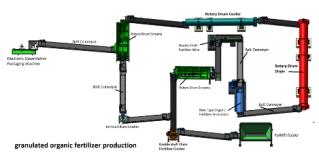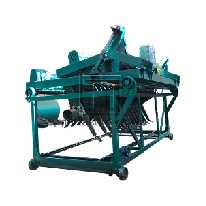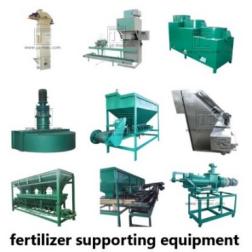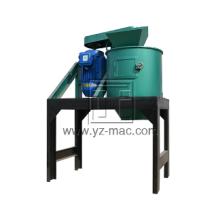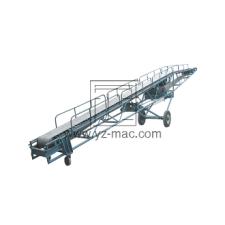Compostmachine
Compost machines are essential tools in organic waste management, enabling the efficient conversion of organic materials into nutrient-rich compost.
Compost Windrow Turners:
Compost windrow turners are large machines used in commercial-scale composting operations. They are specifically designed to turn and aerate compost windrows, which are long piles of organic waste materials. These turners help ensure proper oxygenation, moisture distribution, and decomposition within the windrows. Compost windrow turners are available in various sizes and configurations, including self-propelled and tractor-pulled models, to accommodate different composting needs.
Applications:
Commercial composting facilities
Agricultural and farm-based composting operations
In-Vessel Composters:
In-vessel composters are enclosed systems that provide a controlled environment for composting. These machines use mechanical agitation, temperature control, and airflow management to accelerate the decomposition process. In-vessel composters are suitable for processing a wide range of organic waste materials, including food waste, yard trimmings, and agricultural residues. They offer faster composting times and are often used in large-scale composting facilities or centralized organic waste processing centers.
Applications:
Municipal composting facilities
Food waste processing centers
Industrial-scale organic waste management
Worm Composters (Vermicomposting):
Worm composters, also known as vermicomposting systems, utilize specific species of earthworms to decompose organic waste materials. These systems typically consist of stacked trays or bins filled with bedding materials and composting worms. The worms consume the organic waste, transforming it into nutrient-rich vermicompost. Worm composters are suitable for small-scale applications, such as households, schools, and community gardens, providing a sustainable way to manage organic waste and produce high-quality compost.
Applications:
Home and community-based composting
Educational institutions and small-scale operations
Conclusion:
Compost machines play a crucial role in converting organic waste into valuable compost. By understanding the different types of compost machines and their applications, individuals and organizations can select the most appropriate equipment for their specific needs. Whether it’s a compost tumbler for home composting, a windrow turner for large-scale operations, an in-vessel composter for industrial applications, or a worm composter for vermicomposting, these machines contribute to sustainable waste management practices and the production of nutrient-rich compost for gardening, landscaping, and agricultural purposes.



